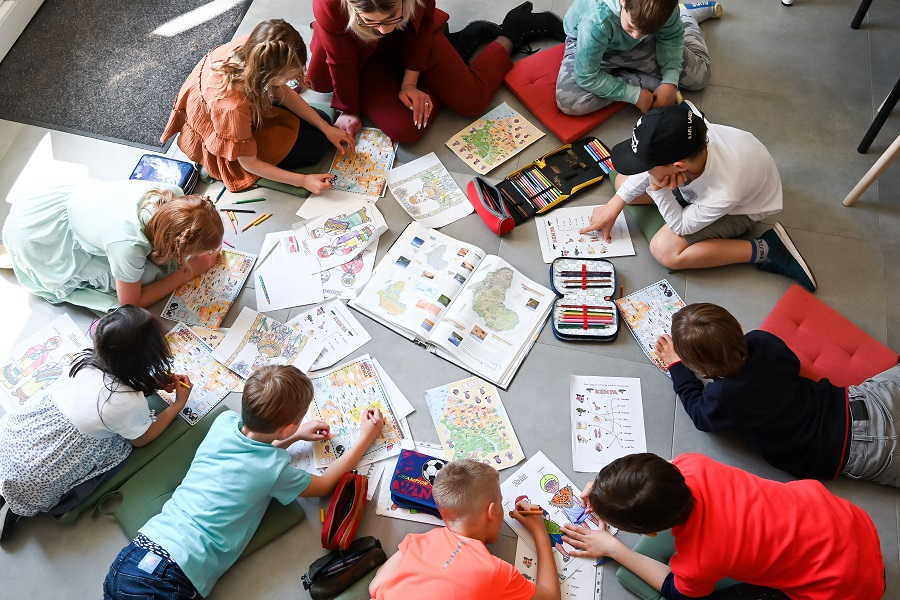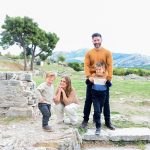Motivated by excellent feedback from the international audit, Harfa International School is expanding and will offer kindergarten, elementary school as well as high school education next fall!
Some say we can only dream of the Finnish education system. But that is not true anymore for children in Split. The address Osmih mediteranskih igara 2 is located right in the heart of Poljud, in the city of Split. That is where the third generation of elementary school students are being educated, at Harfa International School. As we already learned before, Harfa provides the kind of education we all wish for. A student-oriented education where a “one for all” rule is not applied, where the talents and skills of each child are monitored individually, and the teachers represent mentors, ensuring everyone reaches their full potential. Their own, unique potential.
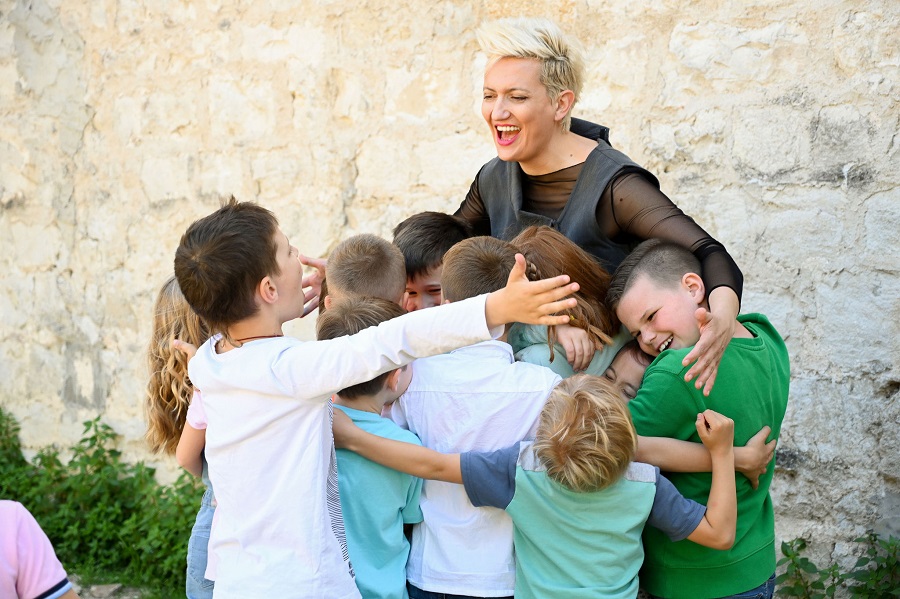
Curious about the news that Harfa is expanding and opening an international kindergarten as well as a high school alongside the current elementary school, we paid them a visit again. We wanted to find out more details and learn about how they achieve excellent academic results in a way that is so different from other schools.
– Yes, it is true that in addition to the elementary school, we are opening an international kindergarten as well as a high school. We are excited because we received excellent feedback during the visit from the international IB audit. Motivated by their encouragement, confirming that our methods are the right ones, starting the next school year, we are expanding. We follow the international IB Primary Years Program (PYP), balancing it with the Croatian curriculum. In addition to regular classes in the morning, our students have regularly scheduled lunch and two snacks, additional time for studying and writing homework, as well as additional workshops such as drama, chess, mental arithmetic, STEM workshops, music workshops, and individual workshops, depending on the needs. Our goal is to achieve learning outcomes in an interesting and student-oriented way. Our methods are based on inquiry-based teaching, research, projects and teamwork, hands-on learning, but above all, on building strong connections between students and teachers who serve as mentors, while students take responsibility for reaching the classroom goals on a daily, weekly, monthly and annual level. We teach them to understand the importance of life-long learning and to recognize the power of their responsibility in achieving all life goals, including school goals. – we learn this from the school principal Antonia Tomas.
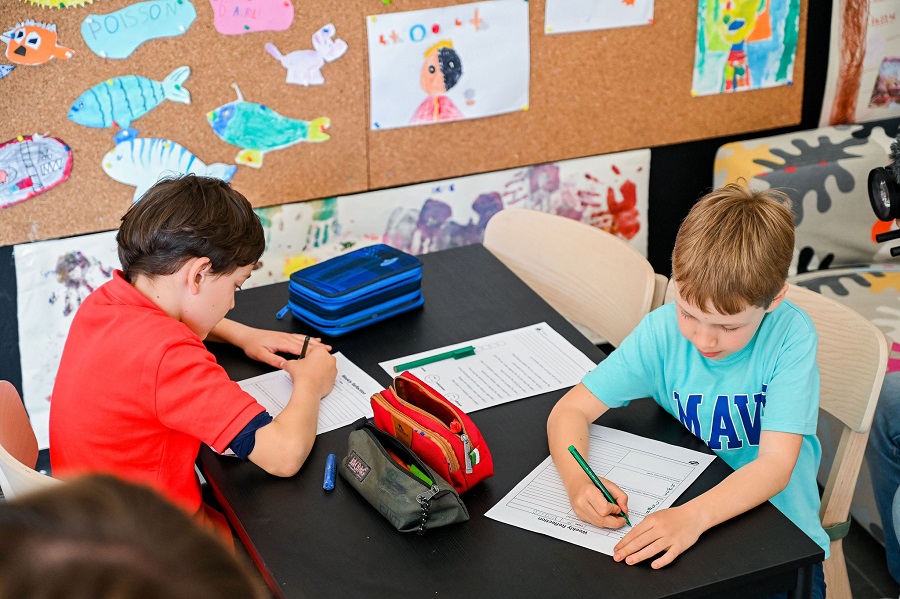
While listening to her explanations and the exciting news about spreading the school offer, we hear the students loudly calling out to their teacher. We find out that they are third-graders who do not allow the teacher to end the lesson until they are done with their plans for the day.
– See, this is the result of allowing children to be co-creators of the lesson plans. Every Monday morning, following the curriculum and the learning outcomes, they plan when and how they will learn about a certain unit. You can see their plan right there on that wall. This is what they have committed themselves to. What do you think; will they skip something? No way! No one wants to leave until the plan is fully executed. – explains the school principal.
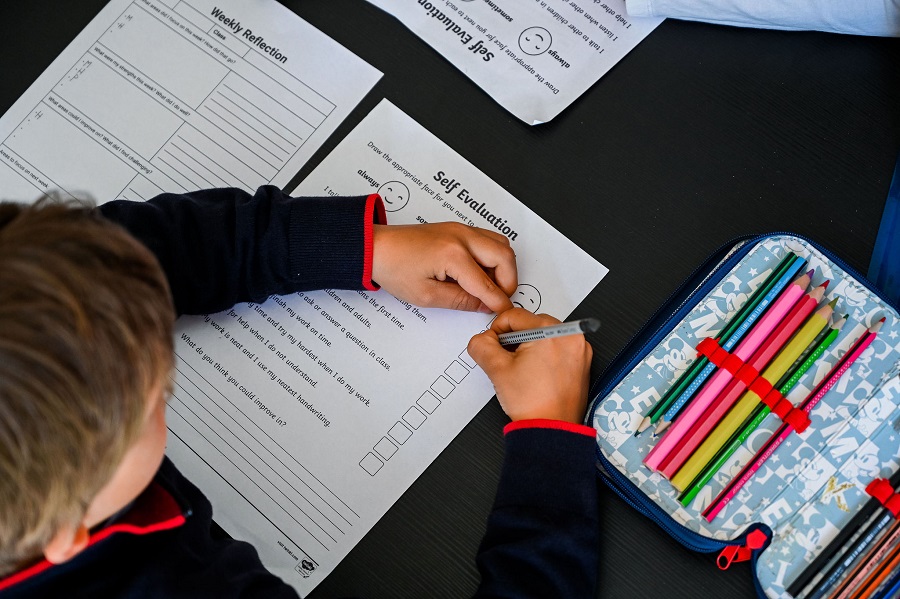
– It’s so inspiring seeing children from different cultures communicating fluently in two languages. As an international school, the official language of communication is English, but the children also learn Croatian. It is interesting to see foreigners wanting to learn the Croatian language with great interest and our children helping them in this. In addition, they have enough free time to play and communicate, and they acquire languages very quickly. Seeing a child who recently came from abroad and now speaks Croatian fluently or a Croat who didn’t speak English at all and now communicates in that language without any barriers is daily proof of how quickly children acquire knowledge. – explains Dubravka Šušnjara, a first-grade teacher who recently moved from Australia.
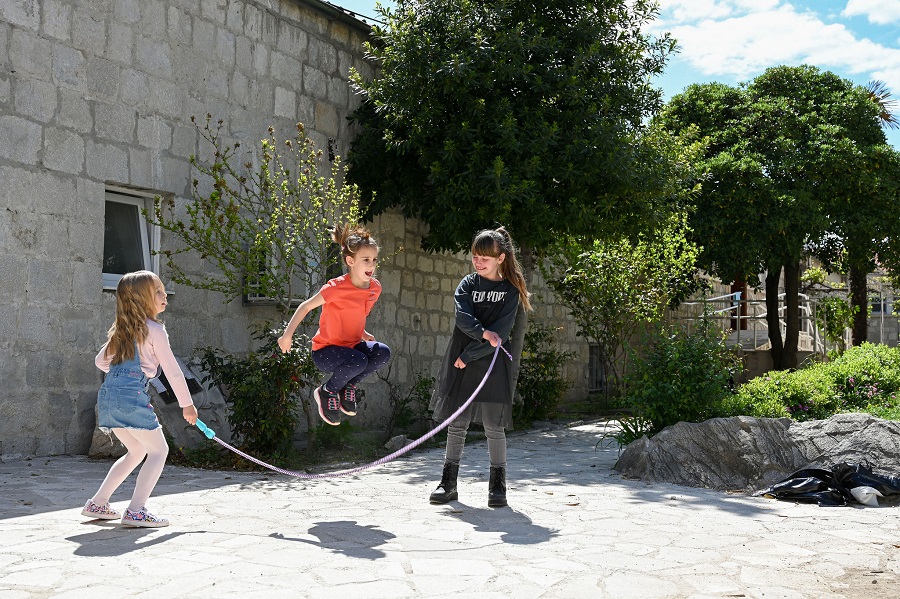
We are interested in her experiences in Australia and in Croatia. Which one is better? But she just waves her hand and adds – This is really the center of the world. With Split as a city tailored for a balanced life and this kind of education, we didn’t think twice. My husband and I decided to return after 12 years, and the main reason was precisely the fact that there was a school like this here. As I am a teacher myself, I also applied for an open position in the school this year. I am grateful that my child, as well as myself, have the opportunity to be a part of such a change in education. – concludes teacher Dubravka.
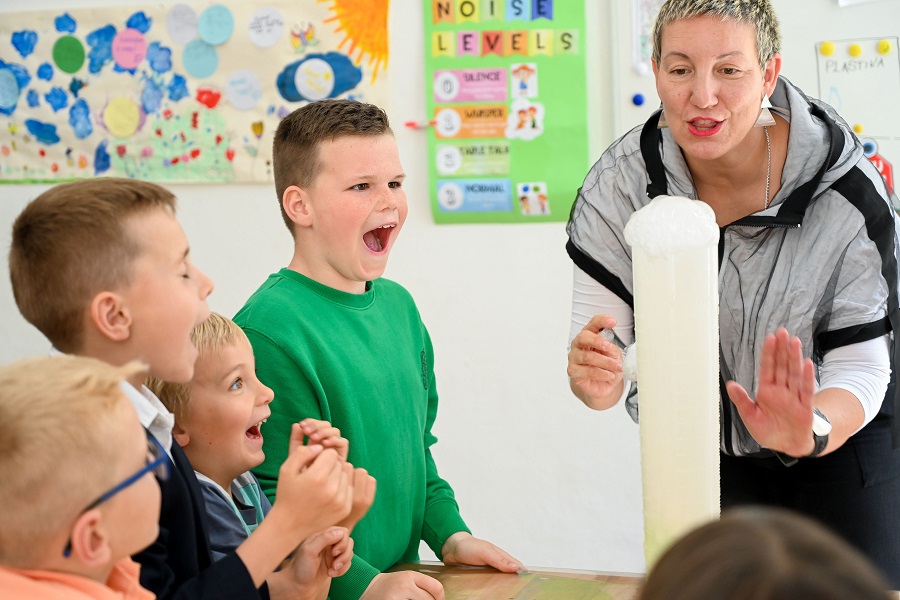
We have already written about Harfa International School. What started as an enthusiastic project founded by Harfa – the publishing company, turned into a global example of excellent practice. During the preliminary application, they tell us, for the prestigious international “IB Primary Years Program (PYP)” which was planned only for the future, the international audit gave Harfa the highest marks and suggested entering the accreditation process immediately. This is how a small private school from Split became an international example of excellence in education.
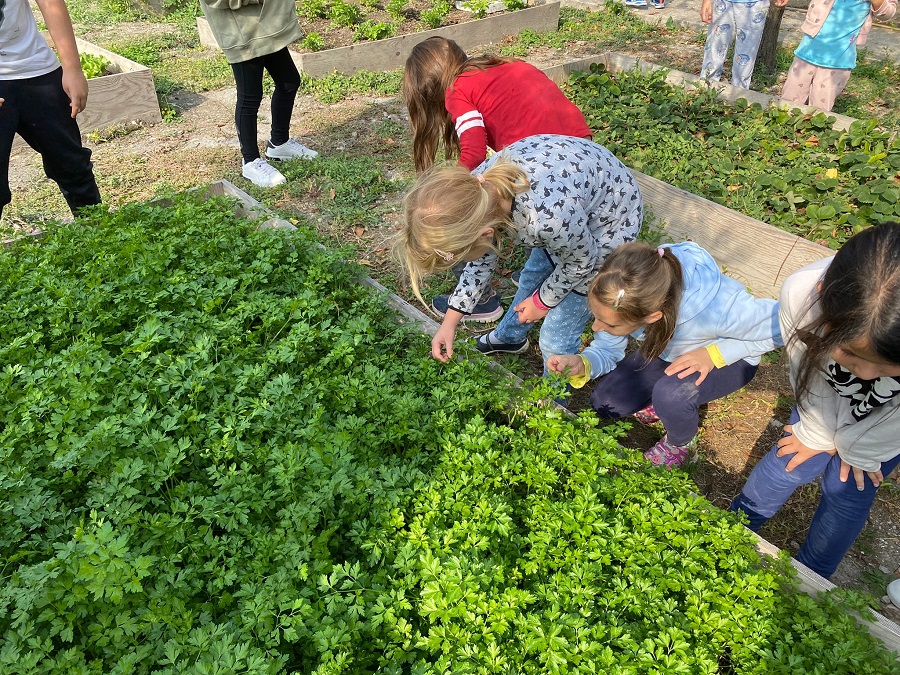
The person behind this inspiring story is Irena Orlović – a psycho-social counselor and one of the main protagonists of Mastercard’s short documentary films FIVE, about female entrepreneurs who have changed the world. Irena was chosen as a representative for Europe, and her inspiring story from Croatia was followed by millions of viewers around the world. After 17 years in publishing books by the world’s most famous authors in the sphere of children’s socio-emotional development, parenting, and mental health in general, through the award-winning web application Pametnica for the development of children’s potential and series of educational workshops for parents, teachers, pedagogues… Irena has decided to turn her rich experience into a school in order to set an example that educational reform, in the best possible way, is very possible in practice.
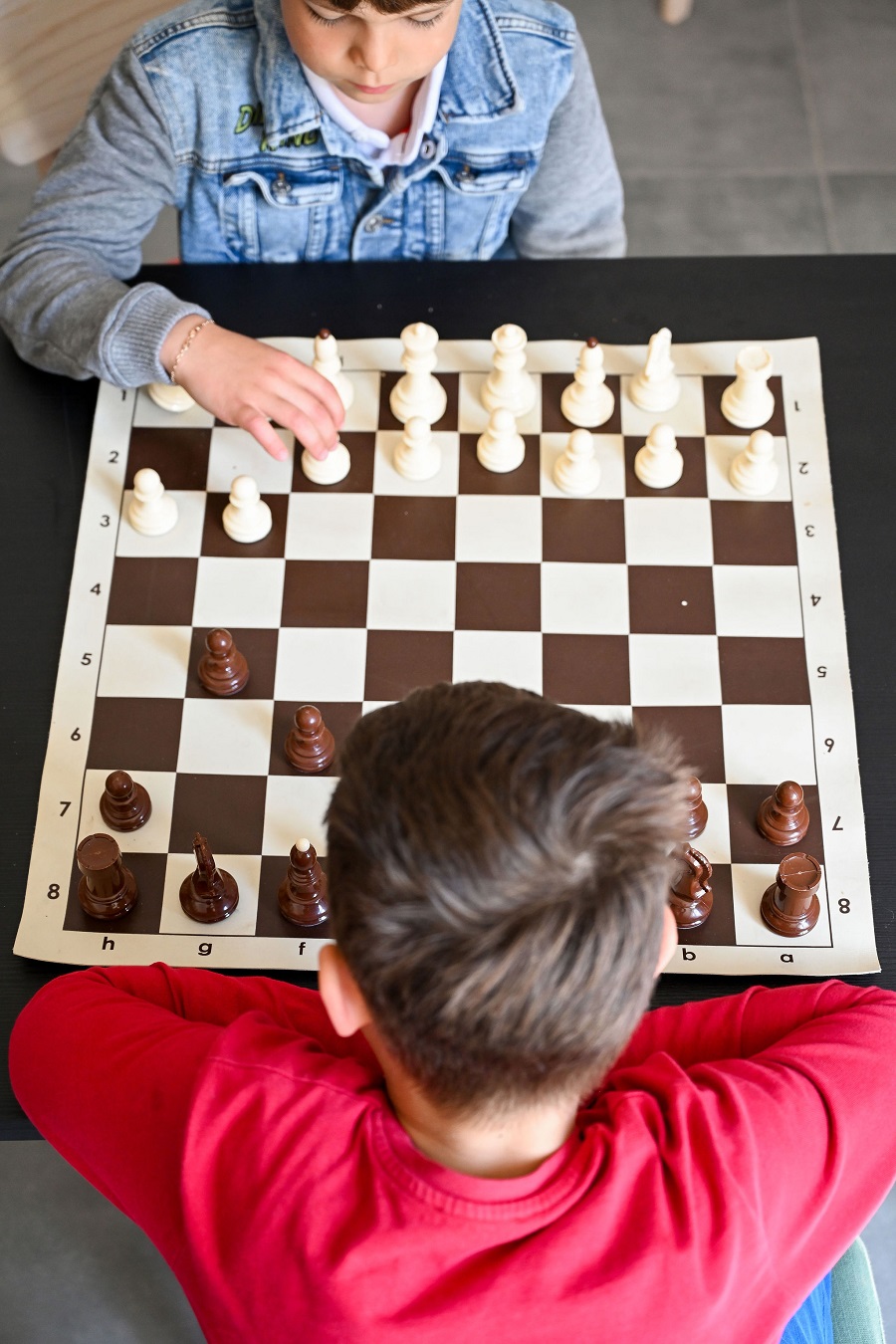
– Many refer to the successful “Finnish” model of education. – Irena tells us. – Some things are culturally determined, and some took years of work to change. Finland, too, carried out its reform more than 20 years ago at a time when it was clear that the same path was no longer sustainable. Some other models in the world can also be analyzed, and we can learn something from all of them. This is what we do at Harfa International School. We collect the best world practices, both scientific research about a child’s well-being, as well as best school practices, and we adapt them to our needs. The third generation is underway, and I can only say that we are very excited about the results we see every day.
We are often asked if the children in our school have grades. The grades exist, but the students are self-reflecting with the support of the teacher-mentor. I want to highlight that our world does not revolve around grades. Our world revolves around creating quality relationships between teachers and students, around strengthening that trust as a basis for everything else. At the end of the year, the children give their own opinion about which grade they deserve. Don’t fall into the trap of thinking they are giving themselves the highest grades. They are very self-critical and their conclusions are rarely different from reality. This is how we teach them to take responsibility for their actions from an early age. Our goal is to encourage curiosity and develop a passion for learning through research, practical work, and projects, by connecting information with real-life situations. We prepare children for the future where they will be ready for all the challenges they will have to face, and this is the essence of education, isn’t it? – Irena Orlović ends her story seriously.
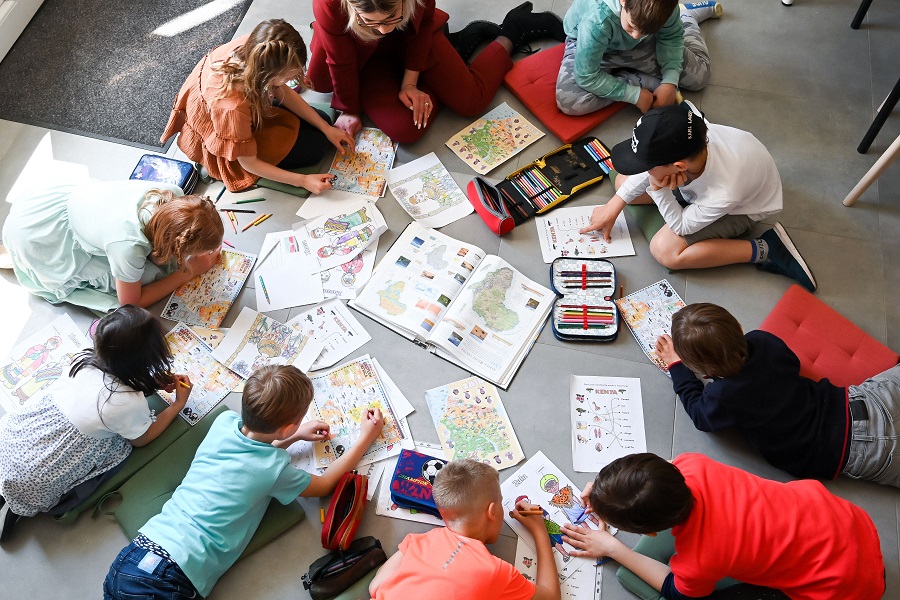
We are interested in learning how long it takes for children to be able to give themselves an objective assessment.
– People do not function “at the press of a button!” Everything I mentioned earlier requires a lot of work and patience. And, of course, trust in teachers. I know it’s hard to accept a different path when we have expectations that have been imprinted in our heads for generations. But, it is clear to all of us that we do not all have the same “settings”. Someone will get to the destination in one way, others in a different way. The point is that everyone will reach their goal, which is the fulfillment of their full potential. And trust me, this will happen if they are offered the space and the right means to do so. – she explains.
While we are talking, children approach us with trays of food. Today, along with a salad, they have polenta and tomato sauce on the menu.
– We plan the menu in cooperation with nutritionists, but many children have already learned in their families that healthy is better. Try them! Offer them chocolate and an apple and let’s see which one they will choose! – laughs Irena. We don’t even need to check, we see that they would choose the healthy option. It is very clear that this school is trying its best to make the students fall in love with studying.

– Yes, we want children to like learning. Our goal is to make inquiry learning and knowledge acquisition their passion. We do not want to instill dry facts in them because the brain remembers what is interesting and important. To some, it looks like we are just playing with the children, but science has proven that this way is more effective in the long run. Let’s look around. Take a look at your own children. Do they remember better when they “learn by heart” out of a book or when you tell them an interesting story, play with them, do some research with them and connect information with real-life situations familiar to them? There isn’t even much wisdom there. Changes in education only require a lot of self-motivation and an effort to connect with children in a way that is in line with their needs. Yes, the challenges of technology and its impact are not negligible, but wasn’t that the case throughout various historical periods in times when changes were made? – explains Irena.
Through children’s laughter, we hear a barely perceptible echoing sound. Suddenly, silence. Irena quietly explains: – Children know when it’s time to play and when it’s time to concentrate and study. When they hear this vibrating bell, it’s time to learn.
The drama workshop will start soon.
– Through drama, they develop presentation skills, face the fear of public speaking, practice self-confidence, memory, concentration… and many other things. To be ready for the future, we should start on time and without pressure, through the game. The same thing is with the other workshops. Chess, mental arithmetic, STEM workshops, music workshops, debates, mental health empowerment workshops, entrepreneurship workshops… each of these workshops is carefully designed to support the learning outcomes, but also the development of soft skills and knowledge needed to face the challenges of the future.
– I used to believe that the same and even better results could be achieved differently from what we had in our traditional education system. Now, I have no doubts about it at all. Three classes at Harfa International School prove that every day. The point of education is to get to know each child, what makes them happy and motivated, and to support them in that. Therefore, I decided that for the next school year, we will open a school center where we will follow our children on their life path from the age of 3 to 18. We are now in the process of opening a kindergarten and a high school, in addition to the existing elementary school according to our program. – explains Irena Orlović, and the slogan of her school is “School for the Future”.
Learn more about Harfa International School on the official website.

